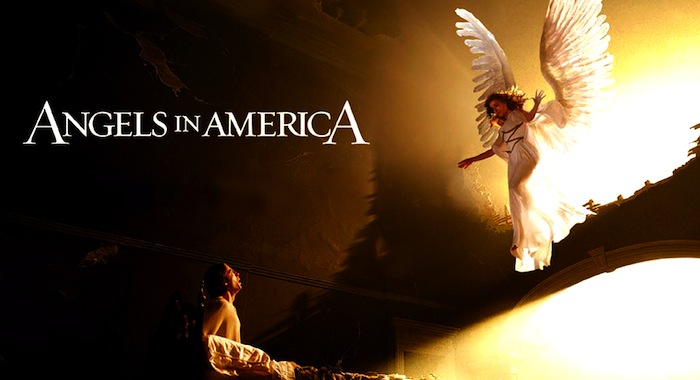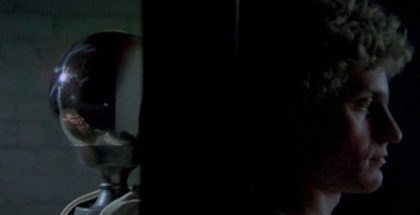Why everyone should see Angels in America
Jo Bromilow | On 22, Nov 2014
Director Mike Nichols died this week, leaving a legacy of incredible variety but unwavering genius. Everyone has a particular favourite, but one work stands out as a true test of his talent – the leviathan that is Angels in America.
Directed by Nichols for HBO, the six-hour miniseries of Tony Kushner’s award-winning, era-defining play (adapted by Kushner for the screen) is the perfect lens through which to look closer at the true scope of Nichols’ talent. Plus, it’s one of our favourites, and we’re going to explain why, when considering picking up The Graduate for the hundredth time in commemoration, you should try this instead.
The scope
Kushner’s play, subtitled ‘A gay fantasia on national themes’, is one of the weightier dramatic works of recent years.
Set in New York during the late 80s, at the height of fear around the AIDS virus, it tells the tale of a group of men and women – Prior Walter (Justin Kirk), his lover, Louis (Ben Shenkman), an attorney, Joe (Patrick Wilson), Joe’s wife (Mary-Louise Parker), Joe’s mother (Meryl Streep) and a fixer (Al Pacino) – whose lives intersect through various twists of fate.
Focusing closely in on them against a backdrop of conflicted American identity, Kushner holds a mirror up to society’s outcasts and their flaws. Sounds meaty? Yep, you’ve got that right.
The themes
The presence of angels and spirits throughout the play, plus a subplot focused on the Mormon faith, might put off those not interested in hearing about religion. But dismiss this at your peril: the title itself comes from a long monologue delivered by one of the characters that touches on various facets of what America, and by extension civilised society, really means. Reagan-era politics (including a famous trial from that period) is deconstructed alongside the place of homosexuality in the new, evolving world of the Eighties. In such a surreal time, adding Emma Thompson as a heavenly messenger isn’t that much of a stretch.
The script
A sparkling, complex thing, much like the series as a whole, the script dances from speedy exchanges to long monologues to candid dissections of those monologues. Part of Kushner’s brilliance is that he can almost sense when the audience are starting to roll their eyes under the weight of what many critics felt was an overblown concept, before translating that eye-rolling into a pithy putdown – usually from Jeffrey Wright, an award-winning turn both on screen and on stage – and returning to the serious themes. His characters live in a strange, uncertain time, and the at-times-bizarre nature of the script’s language reflects that perfectly.
The cast
Nichols’ ability to unite stars and bring together an ensemble of dramatic might is nowhere better captured than here. It is said that Kushner trusted Mike Nichols as director because he insisted that the actors all play multiple parts on-screen as they did in the stage show, and a large part of the fun can be derived from figuring out who’s who beneath the makeup. For all Emma Thompson fans, the series is a must, showcasing her variety and depth of talent across several roles, as she caries the piece on her impressively winged shoulders. Joined by heavyweights, including Pacino (principally as the amoral legal legend Roy Cohn), Streep (as Joe’s nervous Mormon mother) and Jeffrey Wright (flawless as former drag queen Belize), the cast is near impossible to fault; looking for a weak link among them is like searching for a needle in a haystack. You only need to glance at the awards for proof: the series swept the board at the Emmys and the Golden Globes, winning in the miniseries category and taking home all of the miniseries acting awards from both.
The score
There’s not much that can be said to do justice to the sweeping beauty of Thomas Newman’s opening theme, other than it’s criminal that he doesn’t have an Oscar yet. The Grammy-nominated score is classic Newman, switching between the soft, almost hypnotic style we know from American Beauty and his way with a bold central theme heard most recently in Saving Mr. Banks. Stepping away from his trusty piano, the score centres on the oboe – an instrument mentioned within the play – and the flute, both of which create distinctive themes that are equally heartbreaking and hopeful.
Complex, bizarre and cerebral, yet ultimately entertaining, Kushner created an extraordinary thing in Angels in America that is made accessible in the hands of Mike Nichols. Settle in for a long afternoon and evening to witness the scope and breadth of his talent.





















